Discover essential insights on managing constipation with our comprehensive guide. Learn about causes, effective remedies, and lifestyle changes to alleviate constipation and improve your digestive health. Perfect for anyone seeking relief and understanding of this common condition.
Table of Contents
Introduction
Constipation is a common digestive issue that affects people of all ages, yet it’s often misunderstood or not talked about enough. In this article, we’ll dive deep into what constipation is, its causes, how lifestyle affects it, and ways to manage and prevent it. By the end, you’ll have a comprehensive understanding of constipation and how to address it effectively.
What is Constipation?
Constipation is a common digestive condition characterized by infrequent bowel movements or difficulty in passing stools. It occurs when the colon absorbs too much water from the waste (stool), which dries out the stool making it hard in consistency and difficult to push out of the body. The condition can lead to discomfort, bloating, and a sensation of a full bowel.
Typically, constipation is defined by having fewer than three bowel movements per week. However, it can also involve other symptoms, such as:
- Straining during bowel movements
- Passing hard or lumpy stools
- Feeling as though there’s a blockage in your rectum that prevents bowel movements
- Feeling as though you can’t completely empty the stool from your rectum
- Needing help to empty your rectum, such as using your hands to press on your abdomen and using a finger to remove stool from your rectum
Constipation can be caused by a variety of factors, including a diet low in fiber, insufficient fluid intake, a lack of physical activity, changes in routine or lifestyle, ignoring the urge to have a bowel movement, certain medications, and health conditions. It can also occur during pregnancy or as a side effect of certain medications.
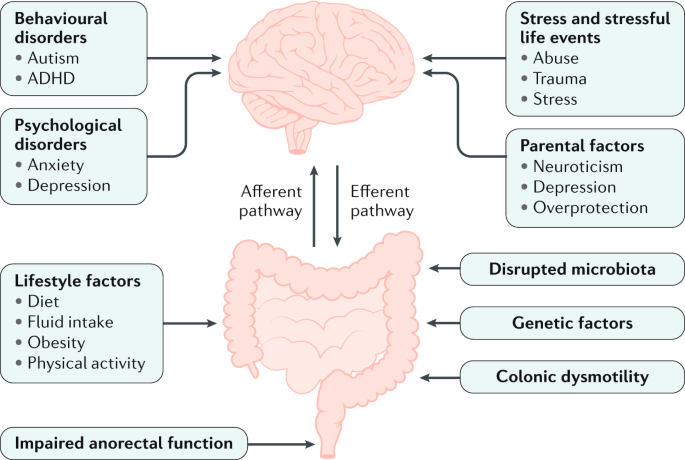
The Impact of Lifestyle on Constipation
Diet and Fiber Intake
A diet low in fiber is one of the leading lifestyle-related causes of constipation. Fiber helps to bulk up stools and promotes their movement through the digestive tract. Foods rich in fiber include fruits, vegetables, whole grains, and legumes. Incorporating these foods into your diet can help prevent constipation by ensuring regular bowel movements.
Conversely, consuming a diet high in processed foods, which are often low in fiber, can contribute to constipation. Such foods include white bread, processed snacks, and fast food. Reducing the intake of these foods and focusing on whole, fiber-rich options can significantly improve bowel health.
Hydration
Adequate hydration is crucial for preventing constipation. Fluids help to soften stools, making them easier to pass. Water is the best choice for hydration, but other fluids like herbal teas can also contribute to your daily intake. Not drinking enough water, especially when increasing fiber intake, can worsen constipation, as fiber absorbs water in the colon to help stools pass more easily.
Physical Activity
Regular physical activity stimulates the muscles in the intestines and colon, helping to move stools along the digestive tract. A sedentary lifestyle, on the other hand, can slow down digestive processes and contribute to constipation. Even moderate exercise, such as walking, yoga, or swimming, can help to maintain regular bowel movements.
Routine and Stress
Maintaining a regular routine can also support digestive health. Eating meals at the same time each day, setting aside time for bathroom breaks, and ensuring adequate sleep can all help prevent constipation. Stress and anxiety can disrupt digestive processes and lead to constipation. Finding effective ways to manage stress, such as through meditation, exercise, or hobbies, can improve bowel function.
Medication and Substance Use
Certain medications, including some painkillers, antidepressants, and iron supplements, can cause constipation as a side effect. Alcohol and excessive caffeine can also lead to dehydration, further increasing the risk of constipation. If medication is suspected to be a cause, consulting with a healthcare provider for alternatives or adjustments is advisable.
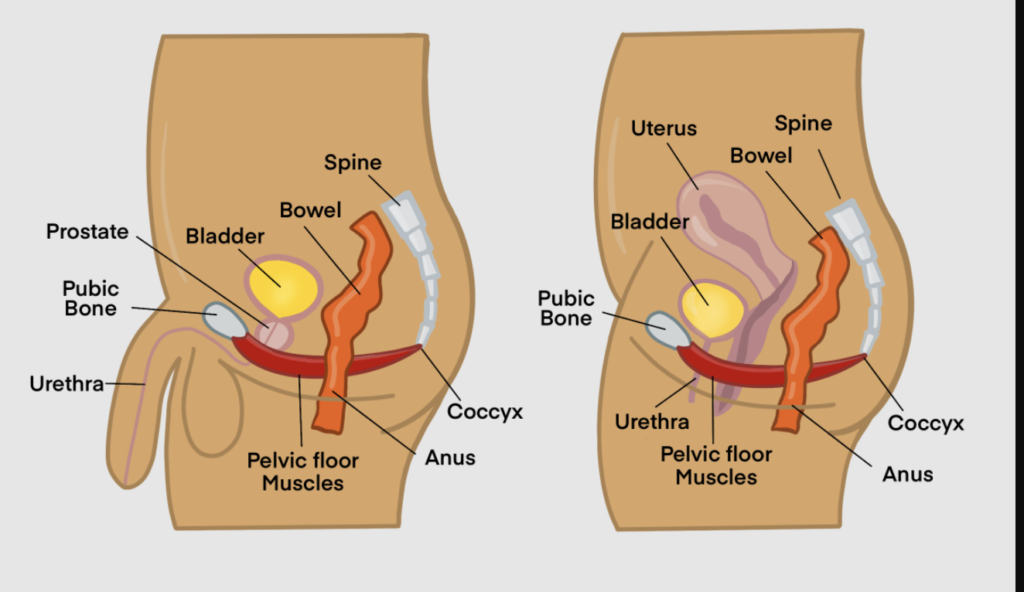
Medical Conditions Related to Constipation
Gastrointestinal Disorders
- Irritable Bowel Syndrome (IBS): IBS is a common disorder affecting the large intestine, characterized by symptoms like cramping, abdominal pain, bloating, gas, and changes in bowel habits including constipation (IBS-C).
- Intestinal Obstruction: Blockages in the intestine can prevent stool movement, leading to constipation. Causes include scar tissue (adhesions), diverticulitis, and tumors.
- Anal Fissures or Hemorrhoids: Painful conditions such as fissures or hemorrhoids can make the act of defecation painful, leading individuals to avoid bowel movements and resulting in constipation.
- Diverticulitis: Inflammation or infection of small pouches that can form in the colon (diverticula) may lead to constipation as part of its symptomatology.
Neurological Conditions
- Parkinson’s Disease: This condition affects the body’s movement, which can include the muscles involved in bowel movements, leading to constipation.
- Multiple Sclerosis (MS): MS can affect the nerves that control the bowel, leading to constipation among other digestive issues.
- Spinal Cord Injuries: Injuries or conditions affecting the spinal cord can disrupt the normal nerve signals that help control bowel movements, resulting in constipation.
Endocrine and Metabolic Conditions
- Hypothyroidism: An underactive thyroid gland can slow down bodily processes, including digestion, leading to constipation.
- Diabetes: Nerve damage associated with long-standing diabetes can affect bowel movements, and constipation can be a common complication.
- Hypercalcemia: High levels of calcium in the blood, often due to overactive parathyroid glands, can cause constipation.
Medications and Supplements
Certain medications and supplements can lead to constipation as a side effect. These include:
- Opioid pain relievers
- Antidepressants
- Anticonvulsants
- Calcium or iron supplements
- Certain antacids
Pregnancy
Pregnancy can lead to constipation due to hormonal changes that relax the muscles in the intestine, slowing down the movement of stool. Additionally, the pressure of the growing uterus on the intestine can impede stool passage.
Psychological Factors
Stress, anxiety, and depression can impact bowel habits, leading to constipation in some individuals. The interplay between mental health and physical symptoms is a crucial aspect of gastrointestinal disorders like IBS.
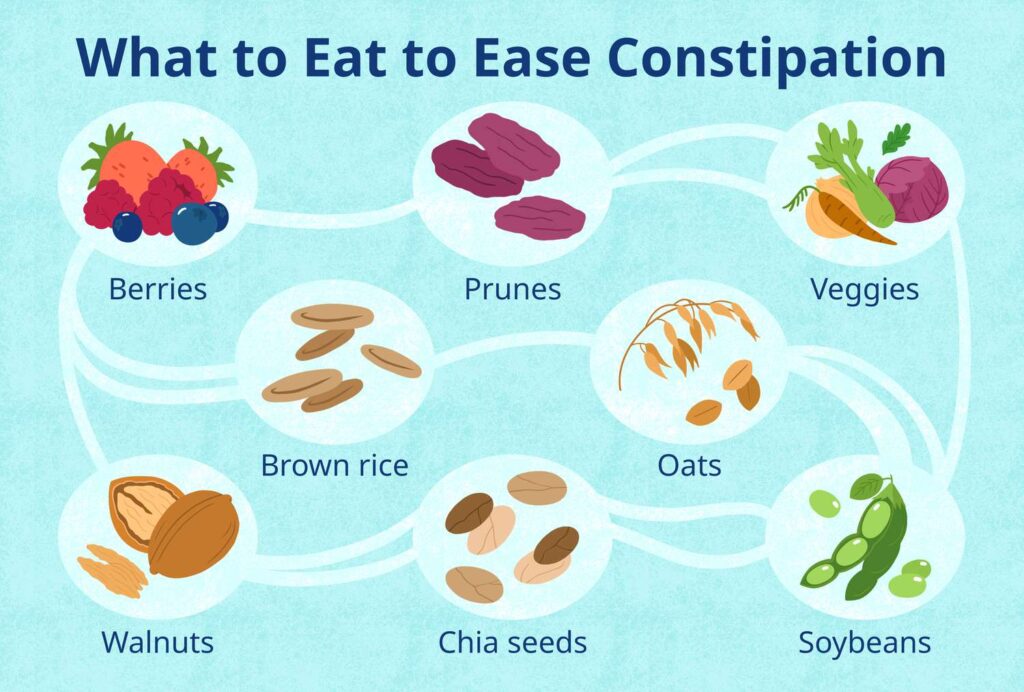
Managing Constipation
Dietary Changes
- Increase Fiber Intake: Consuming more fiber helps to bulk up and soften the stool, making it easier to pass. Aim for 20 to 30 grams of fiber per day through fruits, vegetables, whole grains, and legumes.
- Stay Hydrated: Drinking plenty of fluids, especially water, can help prevent stools from becoming hard and difficult to pass. Aim for at least 8 glasses of water a day.
- Limit Low-Fiber Foods: Reduce the intake of foods low in fiber such as meat, dairy products, and processed foods, as they can exacerbate constipation.
Lifestyle Modifications
- Regular Exercise: Physical activity can increase muscle activity in the intestines, helping with the movement of stools. Aim for at least 30 minutes of moderate exercise most days of the week.
- Establish a Routine: Try to establish a regular time each day for bowel movements, ideally after meals, to take advantage of the body’s natural rhythms.
- Respond to Bowel Urges: Ignoring the urge to go can lead to constipation. Respond to your body’s signals promptly.
Over-the-Counter Solutions
- Fiber Supplements: Supplements like psyllium husk can help increase fiber intake. Be sure to increase water intake when using these supplements.
- Stool Softeners: These can help moisten the stool, making it easier to pass. They are particularly useful for short-term relief.
- Laxatives: Several types of laxatives exist, including bulk-forming, stimulant, and osmotic laxatives. They should be used under the guidance of a healthcare professional to avoid dependence.
Home Remedies
- Warm Liquids: Starting the day with warm liquids, such as water or herbal tea, can stimulate bowel movements.
- Prunes and Prune Juice: Prunes are a natural laxative due to their high sorbitol content, which helps to soften stools and stimulate bowel movements.
- Abdominal Massage: Gently massaging the abdomen in a clockwise direction can stimulate the colon.
When to See a Doctor
While constipation can often be managed with lifestyle and dietary changes, it’s important to consult a healthcare professional if:
- Constipation is new or a significant change in your bowel habits
- You experience persistent pain or are unable to pass stools
- There is blood in your stool
- You experience unexplained weight loss
- Constipation persists for several weeks despite home treatment
A healthcare provider can help identify any underlying medical conditions contributing to constipation and recommend appropriate treatments, which may include prescription medication or, in rare cases, surgery.
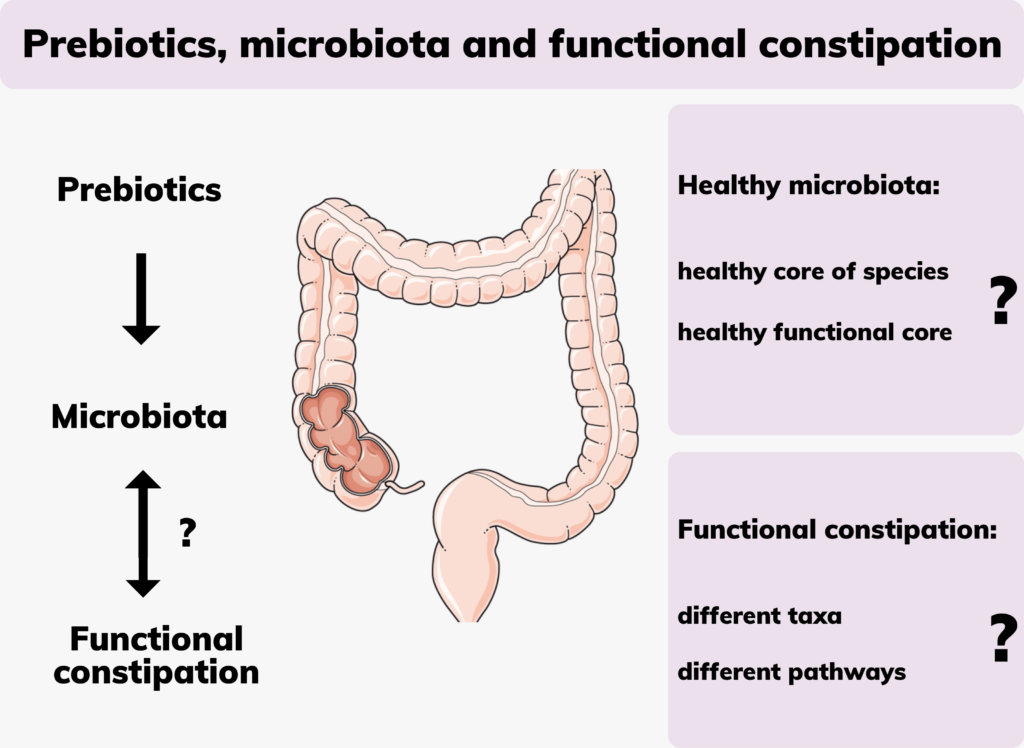
Myths vs. Facts
Myth 1: Everyone Should Have a Daily Bowel Movement
Fact: Bowel movement frequency varies greatly among individuals. While some may have bowel movements several times a day, others might only have them a few times a week. Having fewer than three bowel movements per week is generally considered constipation, but not having a daily bowel movement is not abnormal if it’s consistent and not causing discomfort.
Myth 2: Constipation is Harmless
Fact: While occasional constipation is common and usually not serious, chronic constipation can lead to complications such as hemorrhoids, anal fissures, fecal impaction, and rectal prolapse. It’s important to address persistent constipation to avoid these complications.
Myth 3: Drinking More Water Will Always Relieve Constipation
Fact: Hydration is important for preventing constipation, but simply drinking more water is not a cure-all. If constipation is due to other factors like diet, medication, or a medical condition, increasing water intake alone may not be sufficient. A comprehensive approach including dietary fiber and physical activity is often necessary.
Myth 4: Laxatives are a Safe, Long-Term Solution
Fact: Over-the-counter laxatives can provide temporary relief, but they are not a long-term solution for constipation. Prolonged use can lead to dependency, where the bowel requires laxatives to function properly, and may mask underlying issues. It’s important to use them under medical advice and explore other management strategies.
Myth 5: High-Fiber Foods Instantly Cure Constipation
Fact: While a high-fiber diet can help prevent and relieve constipation, it’s not an instant cure. It may take time for dietary changes to affect bowel habits. Additionally, increasing fiber intake too quickly can cause gas and bloating. It’s recommended to gradually increase fiber in the diet.
Myth 6: Constipation is Only Caused by Poor Diet
Fact: Diet plays a significant role in constipation, but it’s not the only cause. Lack of exercise, certain medications, dehydration, stress, and medical conditions can also lead to constipation. A comprehensive evaluation of lifestyle, health, and diet is necessary to determine the causes and appropriate treatment.
Myth 7: Only Adults Get Constipated
Fact: Constipation can occur at any age, from infants to the elderly. Causes and treatments may vary based on age and overall health, but it’s a condition that affects all demographics.
Conclusion
Understanding constipation is the first step toward managing it effectively. By making informed lifestyle choices and seeking medical advice when necessary, it’s possible to alleviate the discomfort associated with constipation and improve overall health.
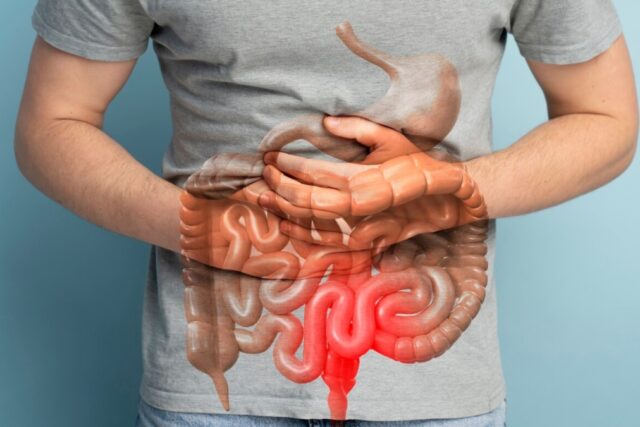

MOST COMMENTED
Animal-Based Proteins / Casein Protein / Dietary Protein / High-Protein Diets / Pea Protein / Plant-Based Proteins / Protein / Protein Deficiency / Protein Supplements / Proteins / Whey Protein / Whey Proteins
Is Protein Powder Safe for Teenagers and Children?
Animal-Based Proteins / Casein Protein / Dietary Protein / High-Protein Diets / Pea Protein / Plant-Based Proteins / Protein / Protein Deficiency / Protein Supplements / Proteins / Whey Protein / Whey Proteins
Unlock the Power of Proteins for Optimal Gut Health
Animal-Based Proteins / Casein Protein / Dietary Protein / High-Protein Diets / Pea Protein / Plant-Based Proteins / Protein / Protein Deficiency / Protein Supplements / Proteins / Whey Protein / Whey Proteins
Pea Proteins: The Best Plant-Based Protein Alternative?
Multivitamin
Total Health: Multivitamin for Active Lifestyles
Multivitamin
WellnessFusion: Complete Multivitamin Support
Dietary Supplement
Revitalize Your Health: The Magic of Red Yeast Rice Capsules
Foot care / Foot Health
Revitalize Your Foot Care Routine: Essential Tips for Optimal Foot Health
Foot Problem / Diabetics / Foot Health
Diabetics: Mastering Footwear Selection for Enhanced Foot Health and Ultimate Comfort
Exercises and Footwear Tips for Hammertoe Relief / Foot care / Foot Health / Foot Pain / Foot Problem / Hammertoes
Unlock Effective Exercises and Footwear Tips for Hammertoe Relief
Hammertoes / Foot Health / Foot Pain / Foot Problem
Unlock Relief: Essential Guide to Hammertoes Causes, Symptoms, and Treatments